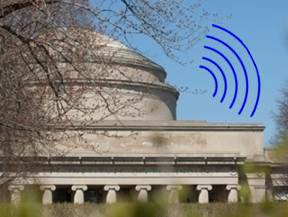Anytime, anywhere, any pace, any age
-
-
slice.mit.edu
Filed Under
Recommended
 Professor Patrick Henry Winston ’65, SM ’67, PhD ’70
Professor Patrick Henry Winston ’65, SM ’67, PhD ’70Like all years, it was the best of years and the worst of years. People of future influence were born; people of past influence died. Companies started up; countries almost went broke.
At MIT, it was a special year because we made it to our 150th birthday, and all the celebrating encouraged us to think about the next 150 years. Here is my prediction: MIT will change more in the next 20 years than it has in the past 100. We have to. Our students learn differently. They have the web. They have Skype. They are on line. We have an obligation and an opportunity to change the way we engage with them.
Many of our successes will be exportable. So, I'm betting that if MIT lasts another 150 years, 2011 will be known as the year when the Provost Rafael Reif launched MITx. Here is what he had to say:
Many members of the MIT faculty have been experimenting with integrating online tools into the campus education. We will facilitate those efforts, many of which will lead to novel learning technologies that offer the best possible online educational experience to non-residential learners. Both parts of this new initiative are extremely important to the future of high-quality, affordable, accessible education.We are going global, and, eventually, you will be able to earn certificates for completing subjects from MIT, anytime, anywhere, at any pace, at any age, and it won't cost $50,000/year. And perhaps the best part is that we are doing it all open source and inviting other universities to join with us.
Of course, distance education has been around for a long time. What's new is that technical advances have just about reached a threshold where on-line is not just a poor shadow of the real thing but rather a different thing with relative advantages and disadvantages, just as movies are different from live theater, with relative advantages and disadvantages.
No one has a crystal ball good enough to see what lies on the other side of the coming education revolution. Are we talking about adjustments or starting over? Are we freeing faculty to spend more time with students one-on-one or are we automating the faculty out of work? And of course it is easier to predict the future than it is to predict when it will happen.







